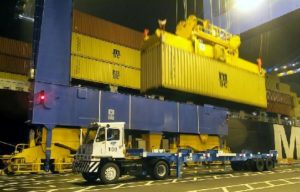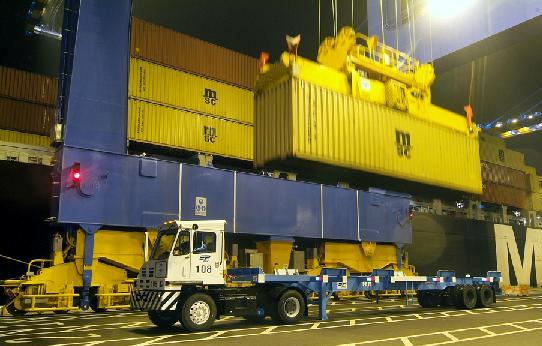 Government officials in South Korea downplayed yesterday the strike staged by unionized cargo truck drivers on Monday, October 10, saying it has caused no major disruption in the country’s logistics transportation, as only a small number of drivers refused to get behind the wheel.
Government officials in South Korea downplayed yesterday the strike staged by unionized cargo truck drivers on Monday, October 10, saying it has caused no major disruption in the country’s logistics transportation, as only a small number of drivers refused to get behind the wheel.
The strike came amid a prolonged walkout by unionized railroad and subway workers, according to Yonhap News.
A total of 16 out of 8,377 truck drivers—including both unionized cargo truck drivers and non-union drivers—rejected companies’ instructions to drive their trucks on Monday, the first day of the strike, according to officials of the Ministry of Land, Infrastructure and Transport.
They said another 1,426 drivers did not explicitly reject their companies’ instructions, though they did not drive their trucks on Monday due to personal reasons, the officials said.
Monday’s strike came amid an ongoing walkout by railroad and subway workers, which has already crippled South Korea’s shipping network and has made it difficult to use railroad transport as an alternative.
As of Tuesday, 7,382, or 40.2%, of 18,355 unionized railroad and subway workers were taking part in the strike, the ministry said earlier.
The railroad laborers’ walkout reduced the operation of cargo trains to nearly half of the usual level, forcing local firms to depend on cargo trucks to haul their export and import shipments to and from the country’s major seaports.
On Monday, the transportation minister vowed stern measures against what he said was an illegal strike by the unionized cargo truck drivers while pledging to take available means to minimize the fallout on the local economy.
The warning came hours after some 7,000 truckers began staging a walkout while demanding the withdrawal of a recent government plan to modernize the country’s shipping industry.
Transport Minister Kang Ho-in asserted that the demand for the withdrawal of the government plan was only an excuse, saying the truckers’ union had always taken part in the process of mapping out the plan all along the way.
The government estimates that cargo containers shipped by trucks may drop by as much as 32% from the usual level with the cargo truckers’ protest action.
“The government will do its utmost to minimize any damage from the collective action by mobilizing all available means,” Kang said.
Such government efforts will include an emergency injection of some 100 military cargo trucks and drivers along with additional resources and temporary workers to boost the operation of cargo trains.
Kang also said those taking part in the strike organized by the truckers’ union will be disqualified for government subsidies on fuel for up to six months.
Busan port woes
For the Port of Busan in particular, the truckers’ strike comes as it has its hands full dealing with the reverberations from the Hanjin shipping crisis, according to local reports.
The biggest drawback is the inter-terminal transport of transit shipment cargo, which is often moved from the Busan New Port to the North Harbor, accounting for a daily average of 800 containers. The port terminals in the city are already becoming crowded following the Hanjin crisis.
No significant setbacks have resulted yet from the latest strike, but a prolonged walkout by the truckers could lead to a series of problems, including the delayed departure of cargo vessels.
Photo courtesy of Busan Port Authority





